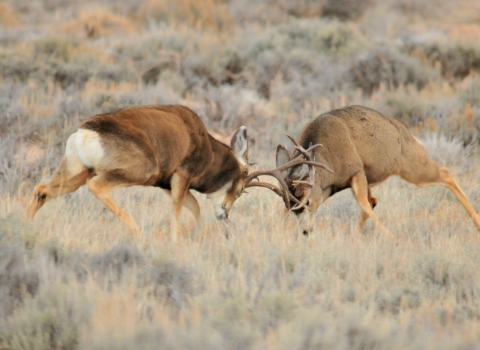Coastal wetlands are vitally important - protecting us from floods, filtering our water, supporting recreation and local economies, and providing habitat for fish and wildlife. Despite their importance, there has been a steady loss of coastal wetlands.
The National Coastal Wetlands Conservation Grants supports long-term wetland conservation by awarding up to $1 million for wetland conservation projects. Since 1992, the grant program has provided more than $400 million to restore and protect wetlands and associated habitats. Between $18 million and $23 million are available for projects annually.
Established by the Coastal Wetlands Planning, Protection, and Restoration Act of 1990 (Act), funding for the grant program is provided by the Sport Fish Restoration and Boating Trust Fund from taxes paid on sport fishing equipment, electric motors and sonar, import duties on fishing tackle, yachts and pleasure craft, a portion of the gasoline tax attributable to motorboats and small engines, and interest on the fund.
Grant Administration
The grant program is co-administered by the U.S. Fish and Wildlife Service’s Wildlife and Sport Fish Restoration Program and Coastal Program.
- The Wildlife and Sport Fish Restoration Program administers many grant programs that conserve habitats for fish and wildlife and enhance recreational opportunities for people.
- The Coastal Program works with coastal communities to protect and restore habitats that are important to them by providing technical and financial assistance.
Apply for Funding
Who can apply?
Eligible applicants include coastal and Great Lakes states* and the U.S. commonwealths and territories. Tribes, local governments, conservation organizations, and private landowners are encouraged to work with state agencies to develop a project and submit an application.
How to apply?
Applications from eligible state agencies must be submitted by the deadline specified in the annual Funding Opportunity Announcement (FOA). Applications must specifically address the requirements in the FOA* and the ranking criteria in Title 50 of the Code of Regulations, Part 84.32.
How does cost-sharing work?
States provide 50% of the project cost or 25% if the state has a land conservation program. Match can be provided by the state or partners and may include the value of previously conserved land and in-kind contributions. For American Samoa, CNMI, Guam, and U.S. Virgin Islands, the first $200,000 non-federal match is waived.
How are projects selected?
Priority is given to projects that: 1) support the goals of the National Wetlands Priority Conservation Plan, 2) provide long-term conservation, 3) conserve maritime forest on coastal barrier islands, 4) benefit threatened and endangered species, 5) encourage public-private partnerships, and 6) complement other conservation projects.
Printable Guide to the National Coastal Wetlands Conservation Grants




